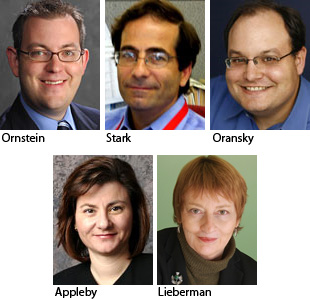Tag
appleby
-
•
New AHCJ board seated for 2012-13
Scott Hensley, NPR’s Shots blog writer and editor, joins five incumbents in being seated on the Association of Health Care…

-
A new wave of hospital consolidation looms
Nationally, the hospital consolidation craze has leveled off since its 2006 peak, but Kaiser Health News senior correspondent Julie Appleby,…

-
•
Corporations push domestic medical tourism
AHCJ Board Member and Kaiser Health News reporter Julie Appleby explores the emerging phenomenon of domestic medical tourism, a catchy…

-
•
AHCJ board names new officers
The AHCJ board of directors elected a new set of officers to take their seats at the upcoming fall board…

-
•
Costs critical to stories about health care (#ahcj09)
Guest post by Jason Roberson of The Dallas Morning News For the most part, health care journalists are shortchanging readers…

-
•
Appleby to report for Kaiser Health News
After 10 years at USA Today, where she covers the health care industry for the business section, Julie Appleby has…


